The Question Of Syria
By Anthony Zeitouni
In Beirut the Syrian crisis invades and surrounds you; it is always there on the table, not just because we are neighboring countries but because we are “one people in two countries” as the late Syrian president Hafez al-Assad said. Also, more Syrians fled to Lebanon during the current crisis, than the 4,600 Syrians who recently entered Turkey.
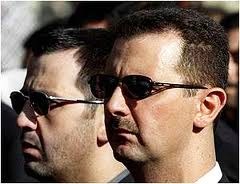 The Lebanese people are divided in their opinion of the Syrian current crisis. Some are counting down the last days of the Syrian regime. Others are preparing to celebrate the upcoming victory of Assad against his enemies. The Syrian refugees in Lebanon are tracking every single piece of news coming out of Syria.
The Lebanese people are divided in their opinion of the Syrian current crisis. Some are counting down the last days of the Syrian regime. Others are preparing to celebrate the upcoming victory of Assad against his enemies. The Syrian refugees in Lebanon are tracking every single piece of news coming out of Syria.
 Several days ago while in Beirut, I met a Syrian Christian who is a former politician. He served in Assad’s administration for a long time and believes that a Syria headed by al-Assad is the safe haven for Christians in both Syria and Lebanon. He argues strongly that the US will not find a friendly regime in Syria if the revolution backed by the Muslim Brotherhood topples Bashar al-Assad’s regime. During our discussion he told me that al-Assad would have peacefully resolved the current crisis in Syria if his brother Maher allowed him to lead the situation. Maher, who does not “believe in political solutions” for crisis such as these, is well known in Syria as the cruel re imaging of his uncle Rifaat al-Assad who allegedly oversaw the Hama massacre of 1982.
Several days ago while in Beirut, I met a Syrian Christian who is a former politician. He served in Assad’s administration for a long time and believes that a Syria headed by al-Assad is the safe haven for Christians in both Syria and Lebanon. He argues strongly that the US will not find a friendly regime in Syria if the revolution backed by the Muslim Brotherhood topples Bashar al-Assad’s regime. During our discussion he told me that al-Assad would have peacefully resolved the current crisis in Syria if his brother Maher allowed him to lead the situation. Maher, who does not “believe in political solutions” for crisis such as these, is well known in Syria as the cruel re imaging of his uncle Rifaat al-Assad who allegedly oversaw the Hama massacre of 1982.
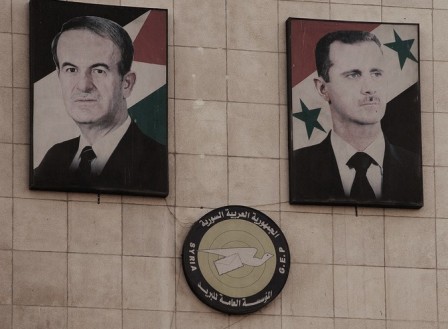 I questioned whether Maher doing his “massacre” now. My interlocutor responded that yes, Maher started badly in the area of Daraa three months ago by using heavy force against peaceful demonstrators. Bashar tried to repair the damage, but it was too late after “the blood of children was shed”. If Bashar does not take the lead swiftly and completely “his regime will not survive the crisis”, he said. The world has changed. “1982 is completely different from 2011, when you can’t hide a massacre in the era of YouTube, Facebook and Twitter.” He concluded by confirming that he is against all kinds of oppression and that Bashar’s bitter enemies are “inside this regime and especially inside the decaying Baath party.”
I questioned whether Maher doing his “massacre” now. My interlocutor responded that yes, Maher started badly in the area of Daraa three months ago by using heavy force against peaceful demonstrators. Bashar tried to repair the damage, but it was too late after “the blood of children was shed”. If Bashar does not take the lead swiftly and completely “his regime will not survive the crisis”, he said. The world has changed. “1982 is completely different from 2011, when you can’t hide a massacre in the era of YouTube, Facebook and Twitter.” He concluded by confirming that he is against all kinds of oppression and that Bashar’s bitter enemies are “inside this regime and especially inside the decaying Baath party.”
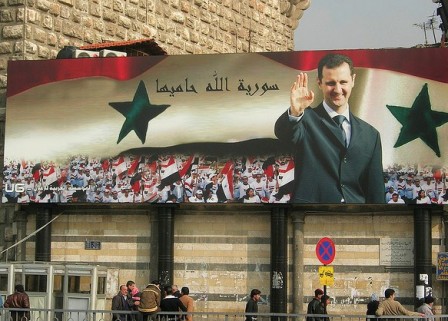 I left this man with the feeling that he was speaking the truth, but I cannot confirm the crucial “bloody” role of Maher al-Assad. The most recent statement of the Turkish Prime Minister, Recep Tayyip Erdogan, stating that the “behaviors of Maher al-Assad are brutish and inhuman” begin to confirm the information I received. Furthermore, Erdogan, who is widely known as a personal friend of Bashar al-Assad added that the “narrations of president Bashar about the current crisis are counter factual.”
I left this man with the feeling that he was speaking the truth, but I cannot confirm the crucial “bloody” role of Maher al-Assad. The most recent statement of the Turkish Prime Minister, Recep Tayyip Erdogan, stating that the “behaviors of Maher al-Assad are brutish and inhuman” begin to confirm the information I received. Furthermore, Erdogan, who is widely known as a personal friend of Bashar al-Assad added that the “narrations of president Bashar about the current crisis are counter factual.”
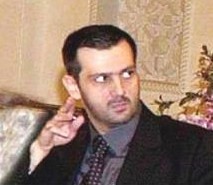 Erdogan’s wake-up call tells me that Bashar al-Assad is losing the trust of his last best friend in the Middle East and perhaps in the world as he recently lost the trust of the Emir of Qatar, who was his only political and economic supporter surviving his international isolation after the assassination of Lebanese PM Rafic Hariri in 2005. Bashar lost the diplomatic overture of French President Nicholas Sarkozy as well as the friendly approach of many other international leaders. Bashar cannot count forever on Obama’s tolerance, and he cannot blackmail Israel anymore as he did on June 5, at the border in Golan Heights.
Erdogan’s wake-up call tells me that Bashar al-Assad is losing the trust of his last best friend in the Middle East and perhaps in the world as he recently lost the trust of the Emir of Qatar, who was his only political and economic supporter surviving his international isolation after the assassination of Lebanese PM Rafic Hariri in 2005. Bashar lost the diplomatic overture of French President Nicholas Sarkozy as well as the friendly approach of many other international leaders. Bashar cannot count forever on Obama’s tolerance, and he cannot blackmail Israel anymore as he did on June 5, at the border in Golan Heights.
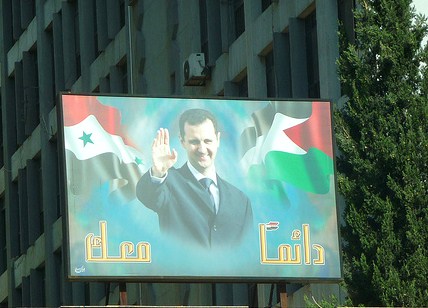 I strongly believe that Bashar and his regime are now in vicious circle following his failure during the past three months to provide the Syrian people and the international community any accurate or effective solution to the current crisis. The single achievement of the Baath regime during this crisis was more killing and more Syrian bloodshed. The world has not heard President Assad speak recently. One wonders why he is out of touch. Does he have any exit strategy? A Syrian woman in Beirut I had met with asked why, as their supreme leader, has he not ordered his army to cease fire. A Syrian refugee in Beirut asked if there are any wise people left in the Baath regime.
I strongly believe that Bashar and his regime are now in vicious circle following his failure during the past three months to provide the Syrian people and the international community any accurate or effective solution to the current crisis. The single achievement of the Baath regime during this crisis was more killing and more Syrian bloodshed. The world has not heard President Assad speak recently. One wonders why he is out of touch. Does he have any exit strategy? A Syrian woman in Beirut I had met with asked why, as their supreme leader, has he not ordered his army to cease fire. A Syrian refugee in Beirut asked if there are any wise people left in the Baath regime.
Living in a vicious circle is a deadly recipe for President Bashar al-Assad and for the Baath regime. What is their attraction to this deadly game?
Editor’s Note: Anthony Zeitouni (anthonygaz@gmail.com ) is a Washington-based analyst who was born in Beirut, Lebanon. He twitts @Anthonygaz. His web site is www.anthonyzeitouni.com
Related Articles

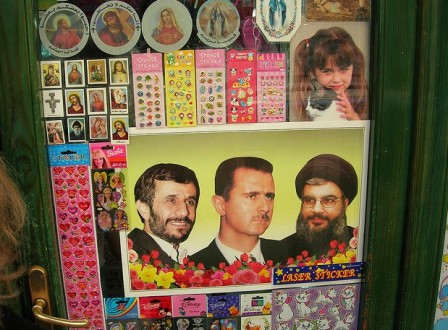











You must be logged in to post a comment Login